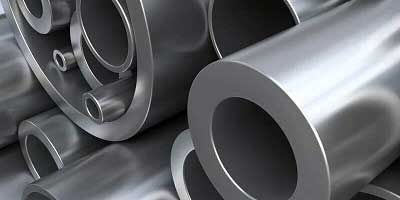Is Stainless Steel magnetic?
Most people are not sure whether stainless steel is magnetic or non-magnetic. Some think it could be magnetic because it contains traces of iron, but in practice the answer is neither yes nor no. Some types of stainless steel are magnetic and others are not.
What makes stainless steel magnetic?
To make stainless steel magnetic, it must meet certain requirements..
- The alloy must contain iron
- The crystal structure of the alloy must have a martensitic or ferritic structure
All stainless steel metals are a type of steel. That means their chemical composition contains iron. In most cases, stainless steel varieties with iron in their composition are magnetic. If the alloy has an austenitic crystal structure, then it is not magnetic.
Ferritic stainless steel - this type of stainless steel is primarily magnetic because it contains large amounts of ferrite in its chemical composition, a compound of iron and other elements. The crystal structure of ferrite and iron makes this type of stainless steel magnetic. However, some stainless steels containing ferrite have a weak magnetic attraction.
Martensitic stainless steels - most stainless steels in this category are magnetic. If iron is present, the crystal structure of martensitic stainless steels can be ferromagnetic. Because iron is the primary material in stainless steels, martensitic steels have magnetic properties.

Austenitic stainless steel - most stainless steels that fall under this category are non-magnetic because they contain large amounts of austenite. Although some metals such as grade 304 and 316 have iron in their chemical composition, they are austenite, which means they are non-ferromagnetic.
They can be made partially magnetic by special thermal treatment or by hardening, which can form ferrite in some places. This is why austenitic grades exhibit a slight magnetism at any edge that has been mechanically worked, such as the edge of a plate.
Why is magnetism in stainless steel important? - Magnetism affects the performance and intended use of the material during application. During fabrication and other processes such as welding, magnetic materials can complicate the processes performed. Magnetic materials can also cause electric currents to behave differently.

Detailed Information

Stainless steel contains chromium, which reacts with oxygen in the air to form a protective layer that makes stainless steel highly resistant to corrosion and rust...